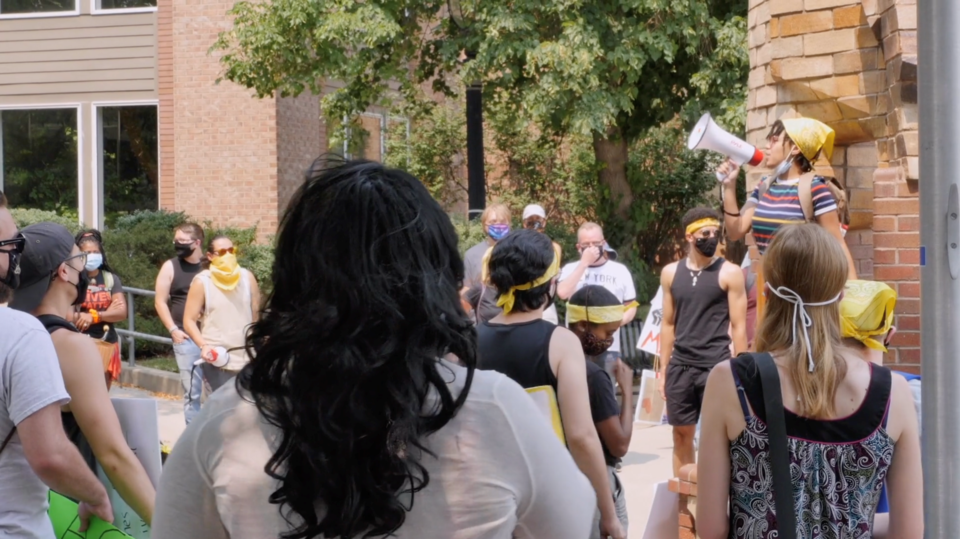When Longmont resident Katrina Miller moved to Boulder in the early 2000s she was excited to start a new chapter in her life. She had enrolled at the University of Colorado-Boulder and was ready to pursue her education. The thing she had not prepared for was being one of the few Black people on campus. The experience, shared by many other people of color, inspired her and her cohorts to understand the lack of diversity in Boulder County by making the film “This is [Not] Who We Are.”
The film premiered in 2022 at the Boulder International Film Festival. The documentary was co-produced and directed by Miller and Beret Strong with editing by John Tweedy. It explores the "gap between Boulder's self-image and the more complex lived experiences — both historical and contemporary — of its Black citizens," according to the film's synopsis.
“We are all long-time Boulder residents. We all went to CU. And living in this community for the white members of my film team, they noticed that the community isn’t as diverse as they would like the Boulder County community to be,” Miller said.
“We began this project almost exactly three years ago, just before Boulder police profiled Naropa student Zayd Atkinson,” said Strong, a white filmmaker and long-time Boulder resident. “I realized I knew very little about Boulder's Black community. And though I have made films set in Micronesia, Latin America, and Africa, I had never made a film that addressed issues in my hometown.”
Atkinson was picking up trash around his dorm as part of his work-study job when police approached him. Six officers surrounded Atkinson because they didn’t believe he belonged there.
Wanting to see a difference the team began researching what it is that keeps Boulder County from inviting in more diverse backgrounds of people. Miller lent her own lived experience to the project.
When Miller attended CU Boulder in the early 2000s it was ranked as the second whitest university in the nation, she said.
“Issues of inequity and systemic racism became more prevalent and more prominent and just so more easily to notice when I moved here, where I didn’t really notice it before,” Miller said. “The hope in making this film was to bring awareness to the fact that there is still inequity going on in Boulder. We need to shatter this myth that Boulder is so progressive and liberal and that it is doing everything right in those areas because there is still work to do.”
Atkinson’s experience is only one of many stories shared in “This is [Not] Who We Are.” Miller said the film crew approached Black community members throughout Boulder County to share their own lived experiences.
“It feels like everybody has a story. In listening to these stories it makes the film more accessible — I believe — because it’s hard to deny someone’s actual lived experience,” Miller said. “A little girl was talking about her fear at school. You can’t deny her her fear because that is something that is actually happening. So to have the audience see some of a variety of what people of color go through here was really the method of explaining what is going on in Boulder.”
The film also takes a look at 150 years of local history and how that set the tone for the racial climate in Boulder County.
Miller said the film has had an excellent impact on the community. It has been used in schools, museums and other venues to talk about racial concepts such as equity, oppression and true allyship. The film has been widely accepted and screened in Boulder but has been left out of the conversation in Longmont, although the film team all reside in Longmont now.
The Light of Christ EEC, located at 1000 15th Ave. in Longmont, will host a screening of the movie on Feb. 10 at 2 p.m. Another screening will shown at Front Range Community College Boulder County Campus on Feb. 22 in the Community Room at noon.



